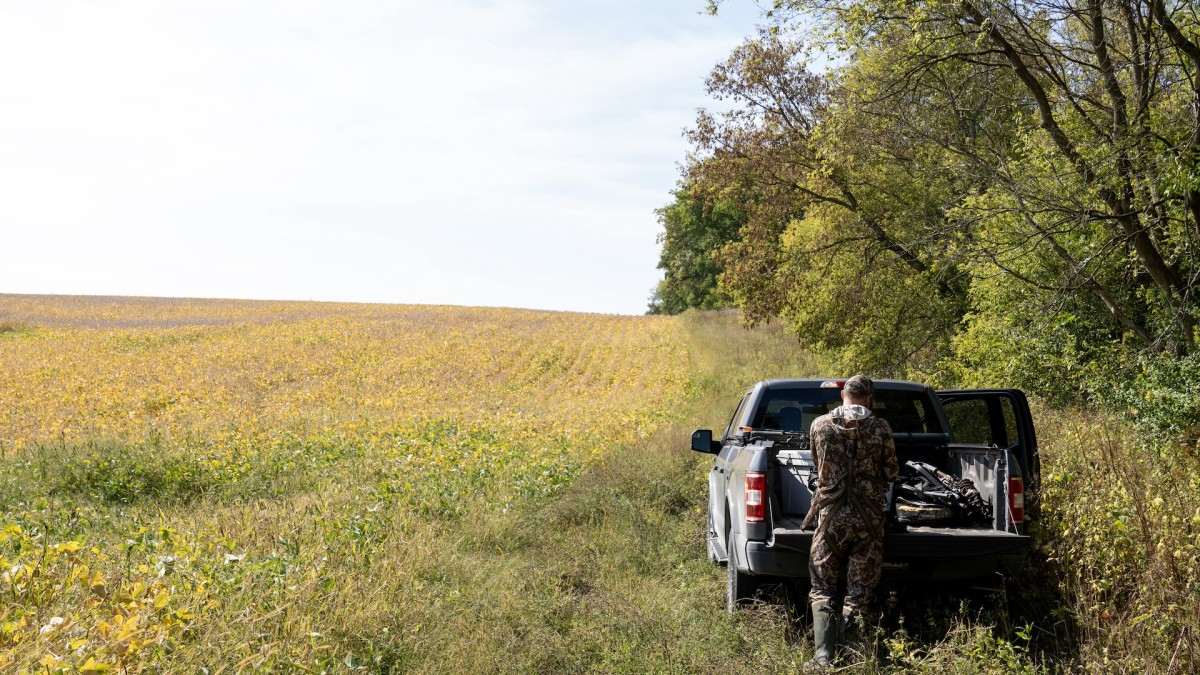
Growing up in southeastern Minnesota, I thought we had the laziest hunters. During gun season, the amount of trucks creeping along gravel roads with the windows down was a sure sign of a road hunt in progress. It never made sense to me to take the hunt out of the hunt and shoot one from the ditch, but I naively thought it was a local issue.
I thought a lot of things about the average hunter from my home state when I was young, and it wasn’t until I started to travel to hunt that I found out those traits were damn near ubiquitous in the general hunting population. It really hit home for me on a spot and stalk mule deer hunt in North Dakota when a couple guys stopped by our campfire to swap stories.
The badlands back then were full of muleys and antelope, and these guys had tags for both. They also explained how they carried their bows in their passenger seat and had shot at several speed goats that day. To my buddies and I, it was a weird exchange that we’d have been embarrassed to admit. To them, it was just one of the ways they hunted.
Since then, I’ve hunted all over the United States and in a few other countries in Africa and South America. It isn’t just hunters in the upper Midwest who try to take the easy route to a filled tag, and it turns out there are a few hard-to-escape reasons for this.
Hunt, Gather, Repeat
Early humans had one job—survive. Hunter-gatherer societies had the daily task of finding calories in the wild while not becoming calories for something else. That was about it. It’s hard for us to conceive of hundreds upon hundreds of generations of hominids living this way. In fact, it’s hard for most of us to imagine what the world was like even 125 years ago.
While reading Cormac McCarthy’s, The Passenger, the other night, this reality hit me. About halfway through the book, he writes these lines: His grandmother was born in eighteen ninety-seven. McKinley was president and the country was at war with Spain. There was no electricity, no telephone, no radio, no television, no cars, no planes. No electricity, no air conditioning. In most of the world no running water and no toilets. Life had changed little since the Middle Ages.
Think about that. It wasn’t even that long ago when the act of getting through a day would have taken so much more energy. Today, we generally don’t have to put much effort in to eat and survive, and that reality bleeds into hunting.
Old Brains, New World
Evolution is a process that finds solutions to problems on a species-wide scale. Most primates never figured out how effective it is to throw things at prey animals or carry valuable objects with them, which led them down a different path. Some primates did, however. Once that happened, the progression from hurling rocks and other blunt objects to crafting and throwing spears was set in motion. This eventually led to atlatls, bows and arrows, and an ever-changing advantage when it came to procuring food or protecting oneself.
We innately work to make things easier, and for almost all of our existence, what we needed to be easier was the procurement of energy. Our old, slowly evolving brains developed reward centers that gave us some sweet dopamine when we found the right berries or walked up on a few fish finning away in crude traps. The evolutionary guardrails of nature push life to find easier ways to stay alive.
While our operating system hasn’t been updated in a long time, the world in which we operate has. We have the luxury of not needing to hunt for food, regardless of whether we prefer wild game or factory-farmed protein. This dynamic is hard to recognize in ourselves, but it’s one of the reasons why it’s so easy to become a lazy hunter, and to seek the least challenging deer we can find.
Modern Hunting
It’s hard to get someone to admit they want their hunting to be way easier, but that reality manifests itself in multiple ways in the whitetail world. Where baiting is legal, it’s by far the most common hunting method. Anyone who can plant a food plot, probably will. If leasing a property and leaving it alone until Halloween is the best way to kill a mature buck, that’s the most likely route a hunter will take.
There’s nothing wrong with any of this. It’s literally hardwired into our brains to try to make this stuff easier. But we also have the option to choose a challenge. We have the option to acknowledge what we want out of hunting, and can try to find that.
This is where so many folks fall a little flat in their endeavors. Some people want real easy, and they make no bones about it. Others think they want easy, but find out that it’s just not for them. Plenty of folks are somewhere in the middle, wrestling with wanting the challenge of killing a mature buck until they figure out how challenging that is in most situations.
It’s a weird state to be in, which results in a lot of hunters who are just kind of lazy. We tend to seek the lowest effort, most direct route when it comes to killing deer, but that has ramifications on ourselves and the resource.
What does this really mean? It’s hard to say, but an interesting thought exercise is to look at our own hunts to examine how fulfilling and enjoyable they really are. Maybe that self-reflection leads us to set down our compounds and pick up a recurve, or for many of us, set down the compound and pick up a crossbow.
The pull of easy is real. It’s not good or bad on a grand scale. It is what it is, and it’s up to us to figure out how much of a challenge we really want out of deer hunting while acknowledging that our default setting is almost always to seek out the path of least resistance on the route to a filled tag.
For more whitetail info, check these articles out: Why You Might Want To Forget About Mature Bucks And Just Hunt, How To Find More Mature Buck Sheds This Winter, and 3 Whitetail Products That Might Just Make You A Worse Whitetail Hunter.





Conversation